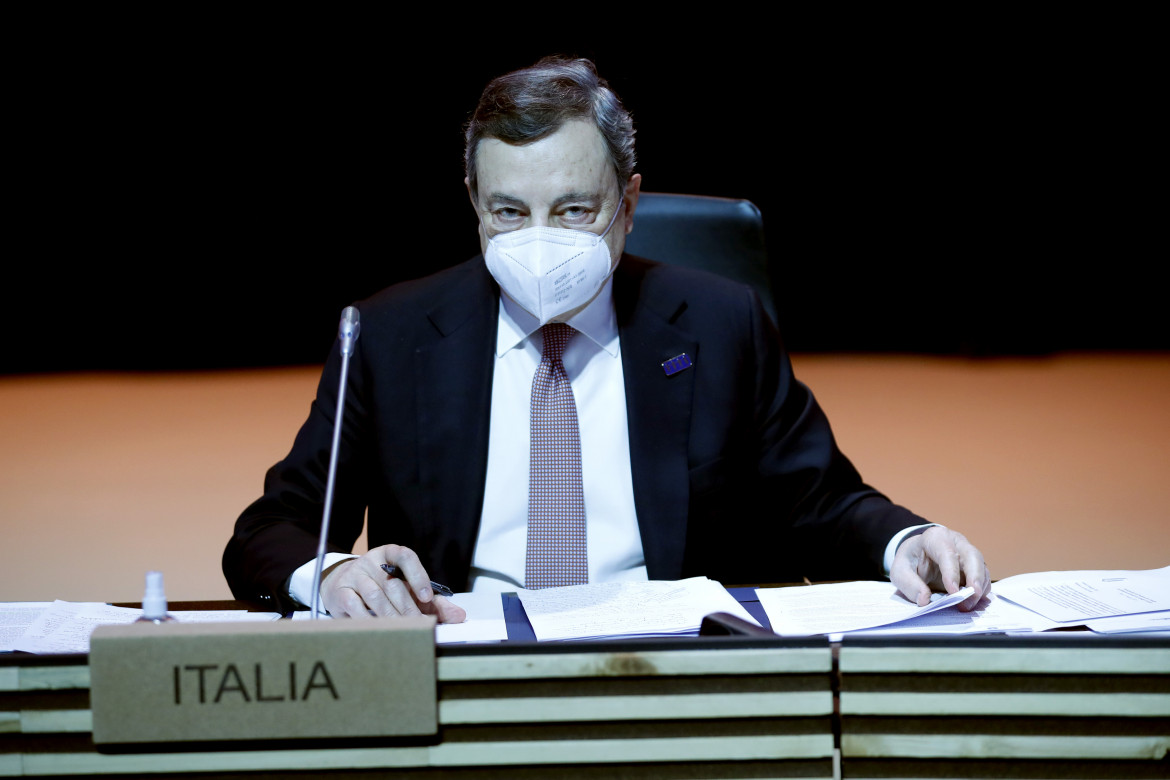Commentary
Who works for workers in the Italian government?
Work is, and should be, the political, social, economic and even cultural keystone of a party that claims the role of protecting that world. But this is not the case.

The triumphalist tone with which the secretary of the PD spoke about the outcome of the primaries does not bode well—if anything, it shows the distance that separates him from the reality of the country. As evidenced by the fact that the three large unions, CGIL, CISL and UIL, are now forced to take to the streets to demonstrate against a government in which the first (political) shareholder is the PD itself.
It seems like a paradox, but in reality it isn’t one at all, because if a coalition consists of the PD, M5S, Art.1, Italia Viva, the Lega and Forza Italia, it is difficult to even hope that its focus would be directed towards those who work for a living. There are other preeminent and dominant interests instead.
Many consider Mario Draghi a sort of wizard who is able to lead us out of the social-economic disaster aggravated by the pandemic tragedy. He is certainly a well-educated person, able to make expansive and drastic economic choices (as he has demonstrated during the last years in which he has led the ECB). However, his trajectory is entirely internal to capitalism, and labor is certainly not his main concern—instead, investments, interest, GDP, the national rating and companies (which, unsurprisingly, are expressing a high level of approval, inversely proportional to the opposition they had towards the Conte government) are his points of reference.
One cannot expect someone whose DNA is infused with the kind of training, experience and credibility appreciated by banks and on the international stage to tarnish their image and put on worker’s overalls. If anything, the Democratic Party should be wearing that “uniform”—however, the latter appears increasingly committed to the logic of power that tends to twist those who are accustomed to being in the control room for too long, where only the ability to decide and influence matters. And the ability to win (even though less and less) the struggle for power.
Work is, and should be, the political, social, economic and even cultural keystone of a party that claims the role of protecting that world. But this is not the case.
Otherwise, Maurizio Landini, the secretary general of CGIL, would not have to complain that “nowadays, exploitation, precariousness and insecurity of work are dominant … The time for life and work has been bent towards the market and towards profit. This absence of social bonds puts the democratic character of the country at risk.” As a result, CGIL, together with CISL and UIL, will demonstrate on Saturday in three cities, Turin, Florence and Bari, in a protest that, even if it doesn’t end up drawing large numbers, may become an important signal.
It is rare to see a trade union mobilization at the end of June: clearly, the situation is truly serious, and not only on account of the tug-of-war about the block on layoffs. However much the Prime Minister, during his European meetings these days, is insisting on the key aspect of social cohesion, there doesn’t seem to be anything to turn this repeated invocation into a reality.
Saturday’s trade union mobilization might function as a watershed for the future of the government, since the PD and Art.1 are well aware that not only is their credibility at stake, but the very meaning of their presence in this anomalous government. Keeping the block on layoffs in place is therefore not only a necessity, after a year and a half of pandemic-induced paralysis, but a message to that part of Italy that recognizes itself in the founding principle of the Constitution, to that part of the country that believes in the centrality and protection of work, a fundamental principle which, furthermore, has been put into question by the twenty years of Berlusconi (who saw the Constitution as nothing more than a communist rag).
This is a form of belonging and an identity which—it must be recalled—has nothing ideological about it. Quite the contrary—because it concerns the survival of millions of people (reduced to poverty while continuing to work), because it involves social life, protects the rights of the majority of the citizens, and fuels the economy of the country. It is difficult to understand how democratic, progressive and leftist forces could fail to realize that by protecting labor, they are also protecting their own uncertain survival.
Originally published at https://ilmanifesto.it/chi-difende-il-lavoro-nel-governo/ on 2021-06-22
